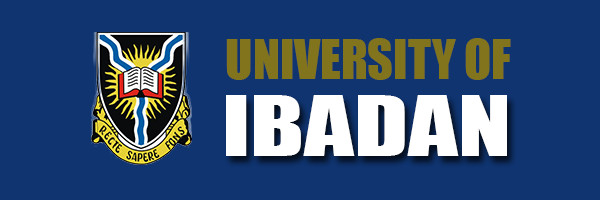Courses
TITLE AND DESCRIPTION OF UNDERGRADUATE COURSES IN THERIOGENOLOGY
VTG 521: Veterinary Gynaeacology Credit Units: 3, 451
A lecture course on the functions and clinical examination of female reproductive organs of large animals, puberty and sexual reproductive hormones and glands, oesterous cycle, acts of copulation, fertilization and gestation, anomalies of foetal development (including genetic and acquired causes); oogenesis disturbances of ovulation and nidation; Courses of infertility and sterility in female animals. Diseases influencing sexual functions.
Remarks: Clinical core course, Concurrent with VTR 531.
VTG 531 Theriogenology Clinics Credit Unit: 3
Clinical training of students with emphasis on the handling of gaenecological cases, treatment of infertility in animals. Instrumentation, Micurtopy, and Pregnancy diagnosis.Remark: Clinical core course, Concurrent with VTR 521.
VTG 612 Andrology and Artificial insermination Credit Units ,2,30L
Clinical examination of the male reproductive organs; Service behaviours; Male infertility; Diseases of tests and accessory sex organs.Serving ability and semen disorders.Inability of male to copulate or fertilize.History of artificial insemination, its advantages and disadvantage, handling evaluation, dilution, storage, deep freezing and artificial insemination-semen collection, evaluation, processing, storage, transportation and insemination techniques.Reproductive disorders affecting insemination.Remarks: Clinical core course. Concurrent with VTR 632
POSTGRADUATE COURSES IN THE DEPARTMENT OF THERIOGENOLOGY
Existing Programmes in the Department:
The existing programmes include the following-
• Master of Veterinary Science (MVSc) Degree in Theriogenology.
• Master of Philosophy (M.Phil.) Degree in Theriogenology.
• Doctor of Philosophy (Ph.D) Degree in Theriogenology.
Entry requirements for each programme:
• Master of Veterinary Science (MVSc) Degree in Theriogenology
a. Admission Requirements: a DVM degree of a recognized University.
b. The minimum duration of the programme shall be three semesters and maximum of five semesters for full-time candidates and a minimum of five semesters and maximum of seven semesters for part-time candidates.
c. A student will be required to register for a minimum of 30 units and a maximum of 45 units including the project.
d. To qualify for the award of MVSc degree in Theriogenology, the student will be required to pass a minimum of 30 units.
e. Areas of specialisation includes i. Small Animal Theriogenology
ii. Large Animal Theriogenology
iii. Wildlife and Captive Animal Theriogenology
f. Compulsory courses for Small Animal Theriogenology are VTG 702, 706, 707, 710, 715, 716, 739 while the required courses are VTG 703, 704, 721, 738 and EMS 727. The elective courses are VTG 701, 711, 705, 708, 709, VAN 719 and PVM 714.
g. Compulsory courses for Large Animal Theriogenology are VTG 702, 706, 707, 712, 714, 716, 739 while the required courses are VTG 703, 713 721, 738 and EMS 727. The elective courses are VTG 704, 711, 705, 708, 709, 710, VAN 719 and PVM 714.
h. Compulsory courses for Wild and Captive Animal Theriogenology are VTG 702, 706, 707, 717, 718, 720, 739 while the required courses are VTG 703, 713 721, 738 and EMS 727. The elective courses are VTG 701, 704, 705, 708, 709 and 714.
Master of Philosophy (M.Phil.) in Theriogenology
a. Admission to the M.Phil. Programme is open to:
i. Candidates who attained a CGPA of 4.0-4.9 in the MVSc degree programme in Theriogenology.
ii. Candidates who possess a Master’s degree in Theriogenology from other Universities recognized by Senate, each case being considered on its own merit.
b. Candidates may be required to take and pass an approved combination of 800 level courses. The courses are VTG 801, 802, 803, 804 and PGC 800.
c. Candidates will be required to carry out original research in Theriogenology and submit a dissertation on a topic chosen in consultation with their supervisors and approved by the Faculty and the Postgraduate School.
d. The degree shall be awarded on the basis of a dissertation embodying significant contribution to knowledge.
Doctor of Philosophy (Ph.D) in Theriogenology
a. Admission to the Ph.D. Programme is open to:
i. Candidates who attained a CGPA of 5.0 and above in the MVSc degree programme in Theriogenology.
ii. Candidates for the M.Phil/Ph.D Degree programme of the University of Ibadan who satisfied the course requirements for the degree and have been permitted by Senate to upgrade their registration on the basis of satisfactory progress in research. The courses for M.Phil/Ph.D are VTG 805, 806, 804, 807, 808 and PGC 800.
iii. Candidates who possess the M.Phil degree in Theriogenology from other Universities recognized by Senate, each case being considered on its own merit.
b. Candidates will be required to carry out original research in Theriogenology and to submit a dissertation on a topic chosen in consultation with their supervisors and approved by the Faculty and the Postgraduate School.
c. The degree shall be awarded on the basis of a dissertation embodying significant contribution to knowledge.
Career/Employment prospects:
• Academics/Research (etc. Universities, NAPRI, ILRI)
• Assisted Reproductive Technicians
• Livestock Consultant
• Companion Animal Breeder/Consultant
• Wildlife and Aquatic Conservation.
AREAS OF SPECIALISATION
(a) Small Animal Theriogenology
(b) Large Animal Theriogenology
(c) Wildlife and Captive Animal Theriogenology
AREAS OF RESEARCH
1. Veterinary Obstetrics and Gynaecology
2. Assisted Reproduction
3. Veterinary Andrology
4. Reproductive Toxicology
5. Mastitis & Udder Health Management
6. Veterinary Neonatology
